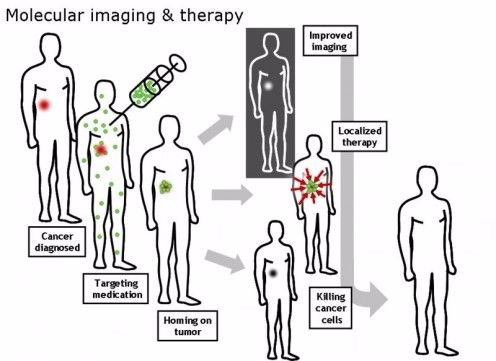
How to Research a Science Topic
Science topics are interesting and easy to research because there are many current and reputable journals online.
Start by browsing through the topic questions below, then look at some of the linked articles or search for your topic online by following the science research links.
Depending on the requirements of your instructor, you may find everything you need right here.
Science Research Topics
Can microbial factories be an answer to the shortage of raw metals?
Is the paleo diet (eating mostly meat) really the way prehistoric people lived? Is it the optimal diet for humans?
Is Europe's opposition to genetically modified crops about science or economics?
Is autism a kind of brain damage?
How can we help autistic savants become productive members of society?
Are annual doctor's check-ups really necessary? Are they really the best way to help people stay healthy?
Can endangered areas and animals be saved by helping local people develop alternative economies like raising tropical fish or ecotourism?
Can researching rare genetic disorders help provide keys to understanding cancer and other illnesses? (see Laron syndrome)
How important is it to explore our solar system? Is space exploration really necessary?
What is dark energy? What do we really know about the universe we live in?
Why do we sleep? How much sleep do we really need?
What is chronic fatigue? Is it a real disease and if so, what causes it? Can it be cured?
Is it beneficial or harmful for wild animals to have interactions with people?
Which of the current science fiction movies is the most plausible? (pick one or more and evaluate its representation of science)
How well do science museums really teach science?
Why do birds have such beautifully colored feathers?
Scientists who study behavioral epigenetics suggest that traumatic experiences such as the Holocaust or the Cultural Revolution in China actually affect the DNA handed down to the next generation. Is behavioral epigenetics true? If so, how should we apply this idea?
How are insects being used as models for miniature robots?
What have we learned about the universe from meteorites?
Did humans interbreed with Neanderthals?
How did human speech develop? Are there clues we can find in researchingprimate social interactions?
How do we remember things? How reliable are our memories in recalling how things really happened?
Why are some diseases that we thought we had eradicated (like the measles or whooping cough) returning to infect people?
Why do animals hibernate?
As men age, do they pass on genetic abnormalities to their children?
 How can microelectronics be used to help people with chronic ailments?
How can microelectronics be used to help people with chronic ailments?
What developments in nanotechnology are currently being made for medical applications?
What is the effect of nanotechnology on research and development of medical technologies?
Can microelectronics inside of contact lenses help diabetics to control their blood sugar?
What is nanotechnology for medical use?
How can "smart clothes" be used to help medical patients?
How can nanotechnology be used to treat cancer patients?
Do the benefits of nanotechnology for medical uses outweigh the risks?
What are the risks of developing nanotechnology in medicine?
How can nanotechnology be used in working with DNA?
Should we use nanobots to produce and deliver drugs to human patients?
Are nanofibers the answer to repairing spinal cord and brain injuries?
Should we use nanotechnology to feed ourselves?
What are the challenges of nanomaterials and nanodesigns?
How could nanomedicine be used to better treat patients in remote regions or the developing world?
Can nanomedicine potentially extend the human lifespan?
Wll nanotechnologies make it possible for people to live in outer space?
How can nanotechnologies help us clean up toxic waste?
What is nanomaterial?
How should nanomaterial be regulated?
How can nanotechnology improve diagnostic testing in patients?
Can covering surfaces with nanoparticles improve airplanes, houses, and other structures?
Is nanotechnology a viable commercial idea? Should we invest in further research and development?
Is the desktop nanofabrication tool a viable option for low cost, easy nanotechnology?
Can nanomaterials be used to reduce CO2 emissions?



